
Emmy The Great: “I’ve done quite a lot of awkward waltzing on my own while composing melodies”
We spoke to one of folk’s stars and she revealed the most important quality that a songwriter requires to succeed
It’s not every songwriter with the poise and penmanship to sit on both sides of the interviewing chair. However, the Hong Kong born and US-based songwriter Emma-Lee Moss – AKA Emmy The Great – is not just any songwriter. Having spent the first 12 years of her life living in Hong Kong, Emma-Lee moved to London in the mid nineties. Though she already had a keen interest in music – having become a fan of artists such as Weezer, The Smashing Pumpkins and The Lemonheads while in Hong Kong – it was not until 2006 that she began releasing music as Emmy The Great.
Three years later she released her debut LP, First Love, and with it became one of the darlings of the burgeoning new folk scene. She followed that with 2011s’ Virtue, before releasing her most recent LP, Second Love, last year.
We caught up with Emmy just after she released her brilliant new single Mahal Kita, and discovered that the most important quality you can possess as a songwriter is the ability to keep going.
Tell us about “Emmy The Great: Living Room Gig – Charity Auction for Sod This!”
“Sod This! For a Laugh was founded by Susannah Tresilian after she lost a friend who was a rough sleeper. It’s her response to the feeling of helplessness that came when she thought about a society that allows some to simply die of cold, when others have so much. You can read about it in her Guardian piece about Sod This! The charity auction was in aid of that, and proceeds will go to Streetlink.”
As a US resident, what’s it like living in a post-Obama, now-Trump world?
“It has been awful, I can’t lie. I think we are living in a world where, increasingly, it relies on us to be kind and empathetic to each other, because we cannot trust that those in power will behave that way.”
Tell us about writing the music for Sara Pascoe’s Pride And Prejudice
“Susannah, who founded Sod This!, brought me onto the project. She’s the director. At the beginning of the process, we met for lots of conversations about Pride And Prejudice – we call ourselves a book club – and now I’m sort of sketching and writing for specific scenes. Pride And Prejudice has a lot of ball scenes, so I’ve done quite a lot of awkward waltzing on my own while composing melodies.”

Emmy The Great: “Sometimes it will feel like blood from a stone, but all you need to do is keep going.”
As part of your research for Pride And Prejudice you discovered a book by Anna Beer called Sounds And Sweet Airs, about female composers “who were silenced, but persisted in their art.” Do you think female songwriters still have their voices muted?
“When I read that book, and with some of the reading I’ve done for Pride And Prejudice about women in the time of Jane Austen, the thing that really hurts is how familiar some of those conditions are. I’m not sure we’ve seen as much progress as we think, especially with things that are hard to pin down, like attitudes or conditioning. If you go to PRS’ Women Make Music fund page, you’ll see some information about women in music in the UK. Only 17 percent of those drawing music publishing incomes in the UK are women. The numbers are a stark reminder that these invisible barriers exist.”
How did growing up in Hong Kong impact upon your musical development?
“In recent years, it’s had a lot of impact. I’ve been drawing on my experiences there to write, and last year I interviewed women who were migrant domestic helpers in Hong Kong, and wrote Mahal Kita about them. I remember people suggesting that the obsession with Englishness on my first album was partly due a desire to be accepted, and I rejected that then, but now I kind of see their point. It’s one of those points you have to make yourself.”
How do you continue to develop your songwriting?
“By playing with new technology and equipment, and by trying new processes. And by travelling! I’m going to China for the first time in April for a month, and I hope to write a lot of stuff while i’m there.”
What’s the one piece of advice you would give our readers to improve their songwriting?
“Just power through. There will be self-doubt and sometimes it will feel like blood from a stone, but all you need to do is keep going. When you get to the end of the song, you will marvel at how simple it is, to have caused so much angst!”
You released Second Love last year. When do you plan on releasing album number four?
“Next year!”
Do you think that being a published writer has helped with your songwriting?
“Yes, at first it helped me get a lot of the long complex sentences in my head out of my head, and away from my songs. Now, I’m using research and interview techniques that I’ve used for journalism in songs, and it’s an interesting new process that I’m enjoying a lot.”
What would you write about your music?
“Ha! I always compose the most horrible reviews in my head as I’m delivering an album. That’s why I hate reviewing people. I try to never do it, and if I have to, I usually end up gushing too much because I’m thinking about all the criticism I’ve seen about my own music.”
Interview: Damien Girling
Mahal Kita is available now via Bella Union. For more, check out emmythegreat.com

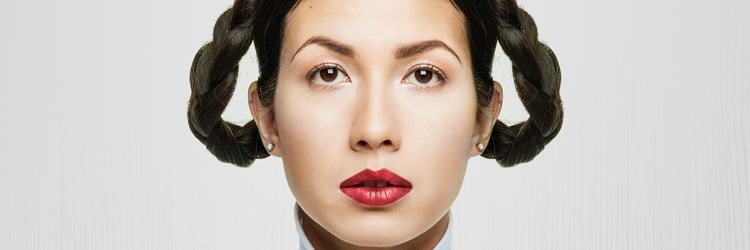

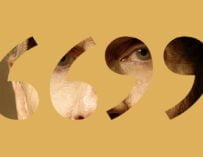

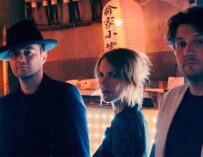
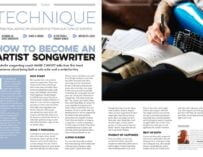




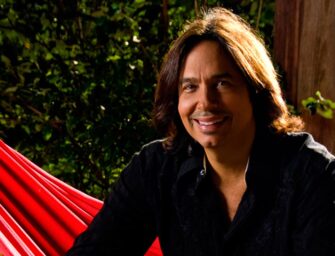
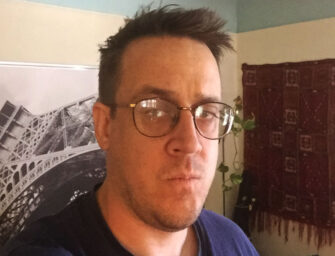






















Related Articles